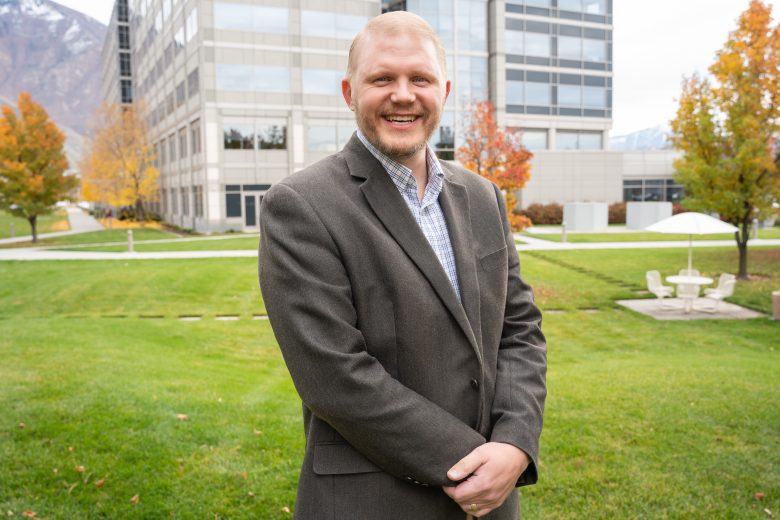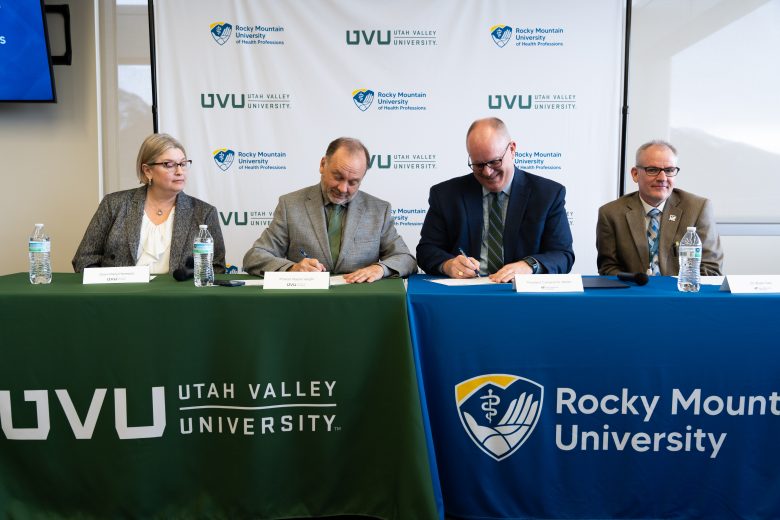On April 9, 2021, the Utah Women in Higher Education Network (UWHEN) hosted its annual UWHEN leadership conference virtually this year. As part of the event, faculty from Rocky Mountain University of Health Professions (RMUoHP) hosted a panel discussion: “Forging Our Own Paths: Envisioning Our Future Selves as Leaders in Academia: Personal/Interpersonal Factors.” The panelists shared personal stories and experiences of struggles and successes in professional development.
This panel consisted of faculty from the RMUoHP Doctor of Physical Therapy (DPT) program: Hina Garg, PT, MS, PhD; Christa Young, PT, PhD; Miriam-Cortez Cooper, PT, MA, PhD; Ann Hoffman, PT, DscPT; and Coral Gubler, PT, PhD, ATC.
The panelists explained the socioecological model and its relevance in impacting women in administrative and leadership positions. The socioecological model underscores the many influences of the environment on an individual. One’s environment ranges from interpersonal, such as family, friends and coworkers; to organizational, such as work, church, and professional groups; to societal, such as societal norms, structures, and policies.
“A person’s perception of their environment, as well as their personal characteristics and values, interact with the environment to shape a given behavior or action,” said Cortez-Cooper. For example, some might see an environment as hostile and unsupportive and look elsewhere to grow while another person might see it as a surmountable challenge and want to grow by overcoming it.
“When considering the factors that influence women in academic leadership, it’s important to recognize that the environment is extremely broad, interactive, and even in some cases multiplicative on its influence on an individual and their behavior,” said Cortez-Cooper.
Young added that she has seen the effect of different environments in her own life. “As we talk about the socioecological model, I can see how it has played a role in my life–in my professional experience. And how all those levels interact, it’s never just one level that’s being affected or that’s affecting,” said Young. Young mentioned moving forward despite her Attention Deficit Disorder. For Garg, she had to overcome her unfamiliarity with a new country’s customs.
For Gubler, she didn’t want to be the center of attention, but found leadership to be a natural process. “I never really went through any formal leadership training and didn’t really pursue a leadership position at all,” said Gubler. “I slowly took on more responsibilities in a small clinic because it needed it.”
Hoffman added, “You have to balance the pieces that are most important to you…For me, it was my family and my new position. There’s a confidence piece there too.” Hoffman went on to describe her experience with starting work at RMUoHP and feeling overwhelmed because of the different educational background she had from what some of her colleagues had. “There was a reflection time,” said Hoffman, “where I had to go back and analyze that it was okay to come in with what I had. It took me a while to find that comfort level.”
The event concluded with a discussion on goals and continual learning. For those still trying to decide the journey before them, Garg advised that they ask themselves the “whys and why nots,” as it is important for an individual to think about what they want to do and why. The panelists explained the importance of taking every opportunity to continue to learn and improve. “As I move forward,” said Garg, “I feel like I still need to learn more….whether it be for research, teaching, or service.”
Each of the panelists forged their own path by staying true to themselves, pursuing what they valued, and leveraging what their environment had to offer. They discussed their journey of becoming healthcare professionals because they love what they do and they love being able to share their knowledge with those around them. The panel event was evident of that as they shared their experiences with other women in higher education.
For more information on the Utah Women in Higher Education Network, visit their website.



